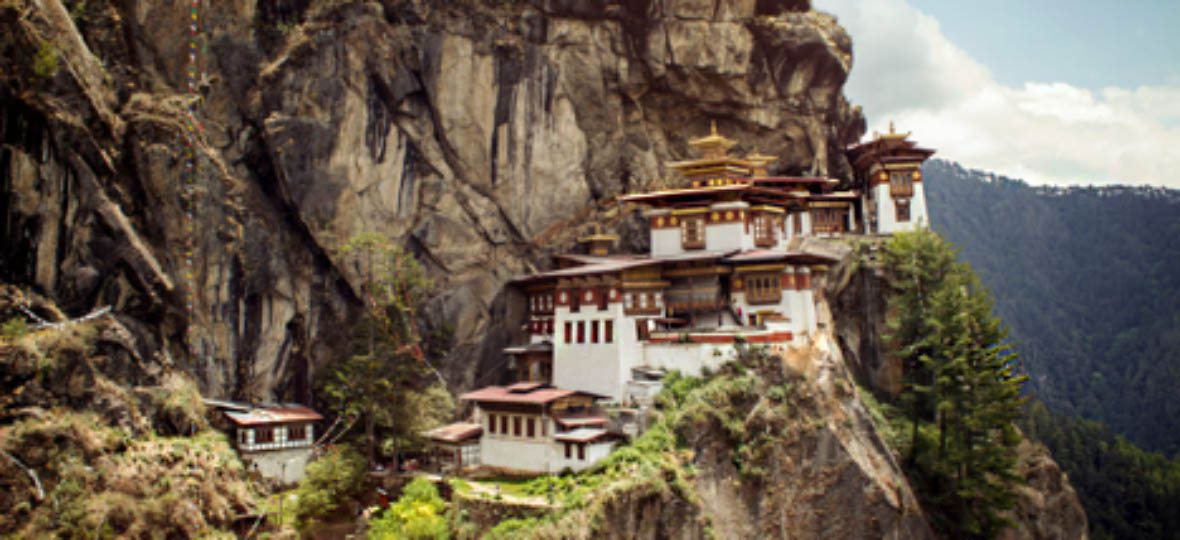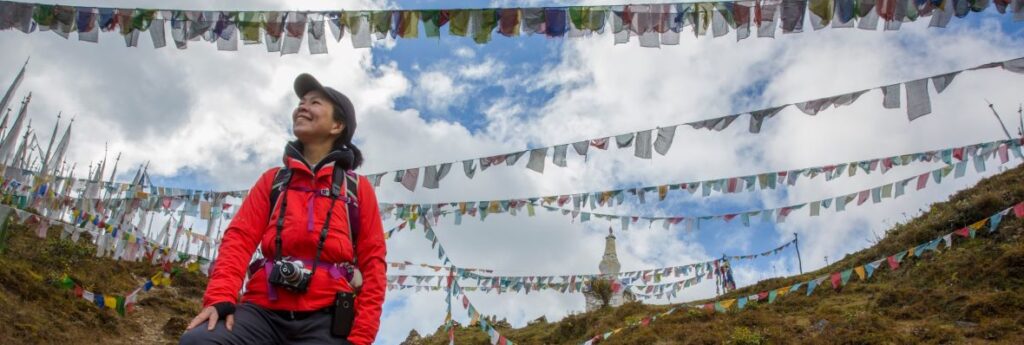Following two years of extensive restoration and a delayed launch due to COVID 19, the Kingdom of Bhutan is set reopen its historic and sacred Trans Bhutan Trail in September, marking the first time in 60 years that the famed, and formerly important, route will be open to travellers.
The trail will be officially reopened in a formal ceremony in Bhutan on Sept. 28, and as its exclusive launch partner, G Adventures will be the first group adventure operator to conduct a tour on the Trail when its inaugural, sold-out, departure leaves on Oct. 2.
Yves Marceau, vice president of product at G Adventures, says the operator is excited to be heading back to Bhutan (and Australia and New Zealand at the same time), which are some of the last to reopen to foreign travellers – and to be bringing tourism dollars back into local communities, specifically in Bhutan.
“We’re honoured to be working with the Bhutan Canada Foundation and the Trans Bhutan Trail to launch this newly restored route in magical Bhutan, and we’re thrilled with how popular the new trips have been, even with the delay in reopening.
“It’s a country we’ve run tours in for more than a decade and have long admired for its commitment to the happiness of its people and sustainable way of life…”
Sam Blyth, chair of the Bhutan Canada Foundation, and lead donor for the Trans Bhutan Trail, says G Adventures was an obvious partner to help relaunch the trail given the company’s long history and success running small group tours and giving back to destinations through its commitment to community tourism.

“As well as providing income opportunities for local people – especially youth – in rural communities, the restoration of the trail is a community-based project designed to preserve an ancient cultural icon and provide a sustainable experience for travellers. Economic benefit will flow directly into the local communities as a result of community tourism, whether via homestays, the purchase of supplies locally for multi-day trips or the employment of local guides,” he says.
Marceau says G will offer two new active trekking itineraries – the 11-day “Camp the Trans Bhutan Trail” and 12-day “Highlights of the Trans Bhutan Trail” – that cover highlights of the trail as hikers traverse forests and meadows and travel through rural settlements around the Dzongs. Travellers can expect an average of three to four hours of hiking each day and local meals each night, whether they are camping or staying in homestays, hotels, or local guest houses.
The two tours focus on trekking specially selected parts of the 403-km trail and connecting with local people to learn about Bhutanese life and culture, thus combining active travel and cultural immersion with the benefits of community tourism.

